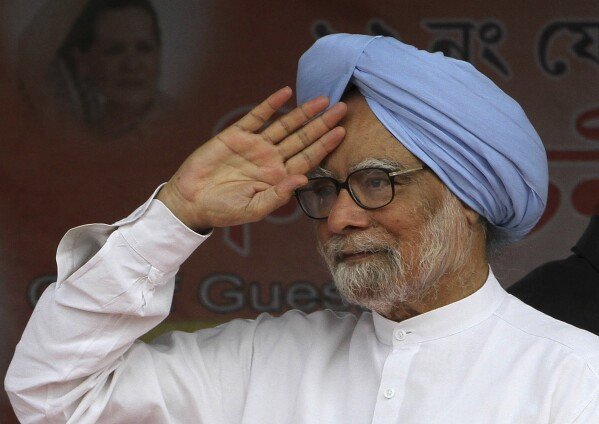Singh was taken to the All India Institute of Medical Sciences in New Delhi for emergency treatment on Thursday after “sudden loss of consciousness at home,” the hospital said in a statement, adding that he had been undergoing care for age-related medical conditions.
Despite emergency efforts, he was declared dead on Thursday night, the hospital said.
Prime Minister Narendra Modi said India was mourning Singh’s passing, calling him one of the country’s “most distinguished leaders.”
“As our Prime Minister, he made extensive efforts to improve people’s lives,” Modi wrote on X on Thursday.
Known for wearing his trademark blue turban, Singh was India’s first prime minister from the Sikh minority. He led the country from 2004 to 2014, completing a rare two full terms in the world’s largest – and often tumultuous – democracy.
An Oxford-trained economist, he was widely credited as the architect of far-reaching reforms that opened up India’s economy, propelling years of unprecedented growth and lifting tens of millions of people out of poverty.
He also oversaw a new era of warming relations between India and the United States, marked by the signing of a historic nuclear energy deal between the two countries in 2008.
Washington offered its condolences following Singh’s death. In a statement, Secretary of State Antony Blinken called Singh “one of the greatest champions of the US-India strategic partnership.”
“We mourn Dr. Singh’s passing and will always remember his dedication to bringing the United States and India closer together,” Blinken said.
Unexpected leader
Growing up poor, Singh was widely respected for his personal integrity and humility. However, a series of corruption scandals against his ministers in his second term had tarnished his image – though he was never accused of being corrupt himself.
The soft-spoken, mild-mannered technocrat didn’t set out to run for top office. Dubbed by some as a “reluctant king,” Singh was tapped to become prime minister by Congress Party leader Sonia Gandhi, who decided to turn down the role herself after leading her party to a shock election victory over the ruling Hindu nationalists in 2004.
Born in Italy, Gandhi faced opposition from Hindu nationalists to lead the country over her foreign roots. And so, she turned to Singh, who was then known for his role in unleashing a bold wave of economic reforms as finance minister in the early 1990s. Though some critics say Gandhi, the widow of an assassinated prime minister, had been the real source of power behind the scenes.














